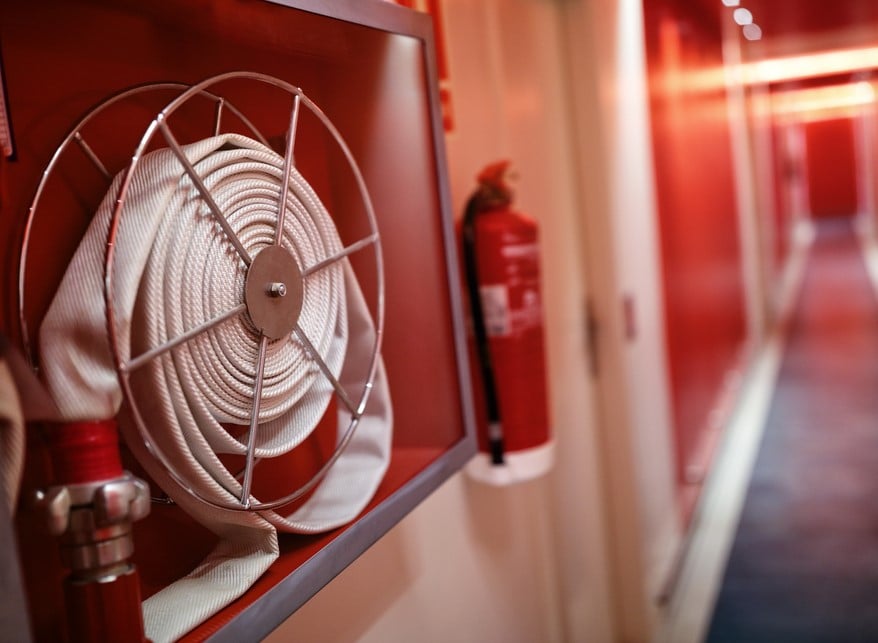
0:06 AM, 24th May 2023, About 2 years ago
Text Size
Landlords and letting agents have been warned that updated fire safety regulations need to be strictly adhered to so they will ensure that tenants in high-rise buildings are safe from any potential danger.
The warning comes from inventory provider No Letting Go, which is now calling on landlords and agents to improve communication with tenants to put their worries at ease.
The new laws aim to make sure that all commercial and residential buildings over 18 meters in height receive the necessary updates to their fire safety procedures.
However, the added work and increased costs involved in implementing the changes will be significant, and industry professionals will need to find the most cost-effective solutions to incorporate their new responsibilities into existing processes.
The chief executive of No Letting Go, Nick Lyons, said: “This year’s changes to fire safety regulations will mean compliance is front of mind for managing agents and landlords of residential rental buildings.
“However, it’s clear from the research that more needs to be done to communicate fire safety procedures to improve tenants’ confidence and make them feel safer at home.”
He adds: “It’s important for agents and landlords to get to grips with their new responsibilities, depending on the size of the building they manage.
“Fire safety laws for high-rise buildings have quite rightly been bolstered, but there are a lot more things for responsible persons to be aware of to ensure tenants’ safety, remain compliant and avoid hefty fines.”
According to a recent survey conducted by construction software provider, Zutec, nearly half of the tenants living in leasehold properties – which are often blocks of flats or taller buildings – observed fire safety hazards.
These issues included non-existent or faulty sprinkler systems, plus fire alarms or extinguishers being removed, and fire escapes being locked or blocked.
Due to these concerns, almost two-thirds of respondents claimed that they don’t feel 100% safe in their homes.
Although 90% of tenants said they know who to approach with any fire safety concerns, many are finding communication with their landlords difficult.
Almost half (43%) of tenants said they haven’t seen any fire safety certificates in their building, while just a fifth felt they received ‘very quick’ responses when issues were raised.
The consequence of not feeling safe in their own home is a worry for tenants, and it should be a top priority for letting agents and landlords.
No Letting Go is now urging landlords and agents to take this responsibility seriously and understand the importance of communicating openly and transparently with tenants.
By sharing information about what has been done to improve fire safety measures in the building, tenants can be reassured that their concerns are being heard and acted upon.
Mr Lyons said: “We know of some building managers who are just doing risk assessments, which isn’t enough to comply, while others are using specialist fire safety companies which can be expensive.
“One cost-effective but fully compliant solution is to incorporate new fire safety responsibilities into existing property reports.”
These checks include five-point fire door checks, block inspections, emergency light and lift testing, plus smoke and carbon monoxide alarm tests.
He added: “By working with an independent professional to incorporate these new responsibilities into their existing processes, agents and landlords can have peace of mind that they’re compliant with the law and protecting their tenants.”
For those landlords and agents who may not be aware, the Fire Safety (England) Regulations 2022 came into effect from January 2023.
The move brought in a range of new obligations for responsible persons such as landlords and agents, who oversee multi-occupied residential buildings that are more than 11 metres high.
These new responsibilities include conducting annual checks of all apartment entrance doors that lead onto a building’s common parts, such as apartment front doors, as well as quarterly checks on all fire doors in common parts.
For managers of high-rise residential buildings, which are at least 18 metres high or have at least seven storeys, the regulations are even more stringent.
They will need to install a secure information box for important documents, keep local fire services updated with any changes and carry out monthly checks on lifts and firefighting equipment.
These new laws have been introduced to provide complete peace of mind to the building’s residents ensuring their safety remains a top priority.
Previous Article
Section 13 rent increase?